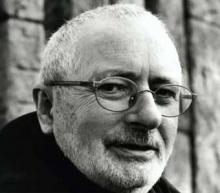Terry Eagleton is a literary scholar, cultural theorist, and prolific author in England who, working from Irish-Catholic roots, has argued the merits of a populist Marxism as an alternative to postmodern theory and institutional Christianity. As a public intellectual, Eagleton gained prominence for his trenchant criticism of the “new atheism” as naïve and of the highly intellectualized postmodernist theory as bankrupt.
Born in 1943, Eagleton attend Cambridge University in the 1960s for his bachelor’s and master’s degrees, and on earning his Cambridge doctorate was a student of the literary critic Raymond Williams. He became a fellow of Jesus College, Cambridge—the youngest since the eighteenth century—and then moved to Wadham College at Oxford University in 1968. He began by specializing in Victorian literature—such as the works of Charles Dickens—but ranged widely into both Shakespeare and modern literature. He was especially interested in the rise of the new literary theory among French intellectuals who advocated a “postmodernist” viewpoint. He gained prominence in the debate over literary theory by presenting a new Marxist approach in his 1976 book Criticism and Ideology: A Study in Marxist Literary Theory.
Although an atheist, Eagleton joined the “new atheism” debates of the twenty-first century by criticizing the naïve atheism typified by the writer Christopher Hitchens and science educator Richard Dawkins. Eagleton has said that the social and ethical teachings of Jesus were exemplary. In his 2011 book, Why Marx Was Right, he similarly argues that the basic analysis of Marx was correct, but has been corrupted, simplified, and co-opted just as institutional Christianity corrupted the populist ethics of its founder. Eagleton is known for an enjoyable literary style that has often made his surveys of dense theoretical issues highly readable. He has written more than fifty books.
At Oxford University, Eagleton was the Thomas Warton Professor of English Literature from 1992 to 2001 and then became John Edward Taylor Professor of English Literature at the University of Manchester. In 2008 he became a Distinguished Professor of English Literature at the University of Lancaster in northern England. As a resident of Dublin, Ireland, he also took the post of Professor of Cultural Theory at the National University of Ireland, Galway. He has held visiting appointments at a number of universities around the world, including Cornell, Duke, Iowa, Melbourne, Notre Dame, Trinity College Dublin, and Yale. He is a fellow of the British Academy and the English Association.
Eagleton is the author of the novel Saints and Scholars (1987). He wrote the play Saint Oscar (1989) and penned the screenplay for Derek Jarman’s film Wittgenstein (1993). His works on literary theory have been used as popular introductory texts for undergraduate and graduate students in English literature. His nonfiction works include The Event of Literature (2012), Why Marx Was Right, (2011), Reason, Faith, and Revolution: Reflections on the God Debate and On Evil (2009), How to Read a Poem (2008), Trouble with Strangers (2008), The Meaning of Life (2007), After Theory (2003), The English Novel: An Introduction (2004), Sweet Violence (2003), The Gatekeeper (memoir, 2001), Modernity, Modernism, Postmodernism: Essays (2000), The Illusions of Postmodernism (1996), Marxist Literary Theory: A Reader (coeditor, 1996), The Ideology of the Aesthetic (1990), Literary Theory (1983), Body as Language: Outline of a “New Left” Theology (1970), Directions: Pointers for the Post-Conciliar Church (editor, 1968), and The New Left Church (1966).



